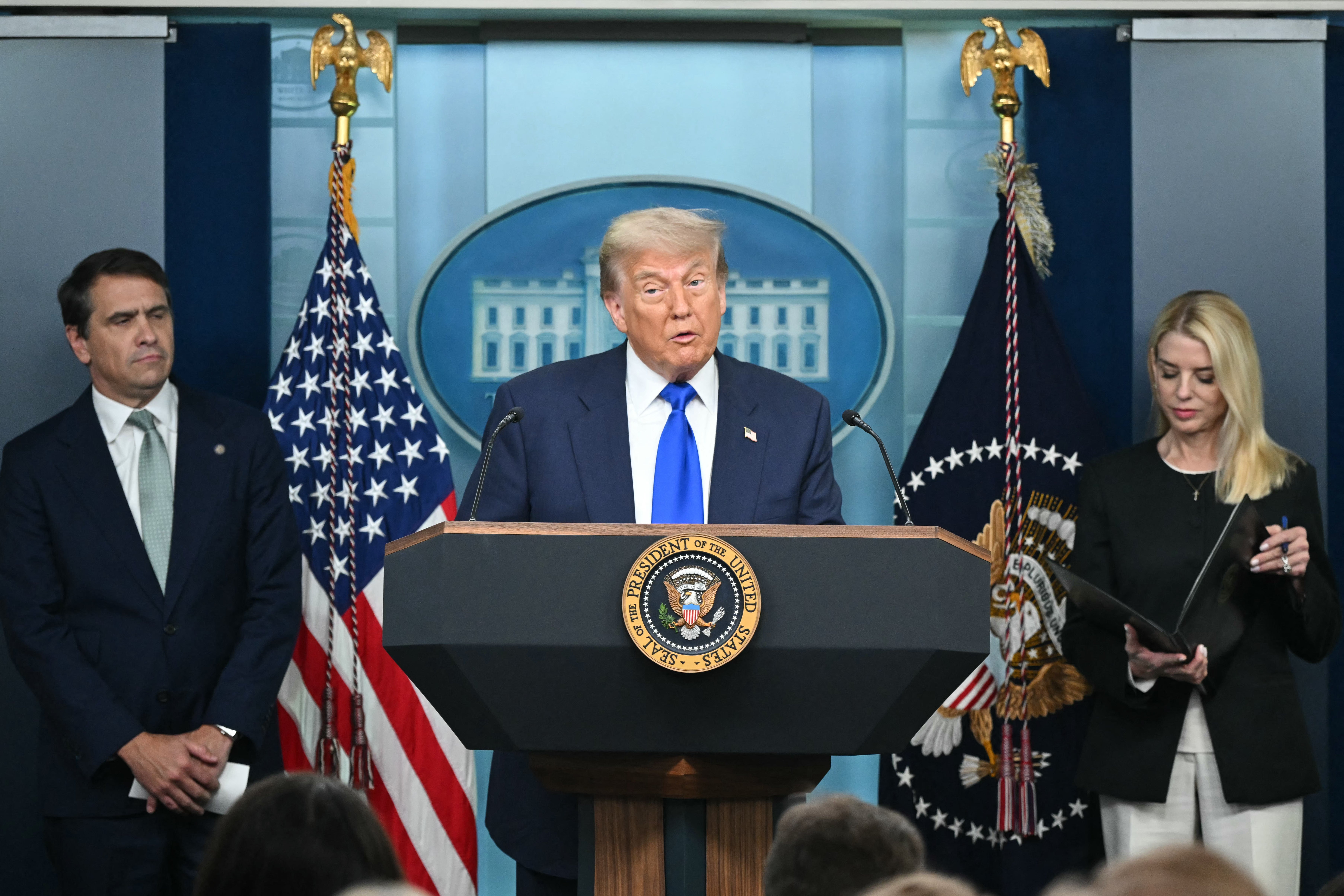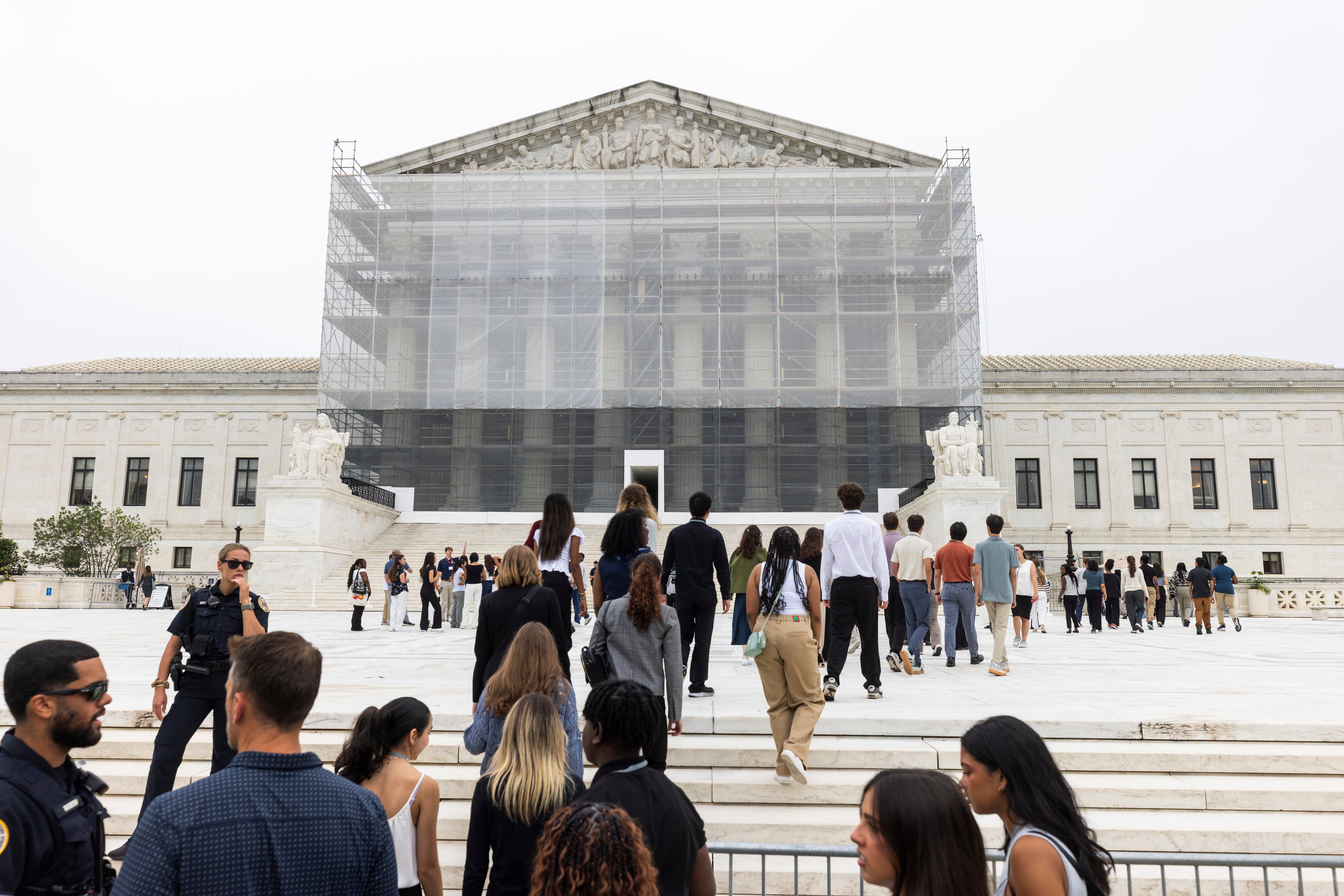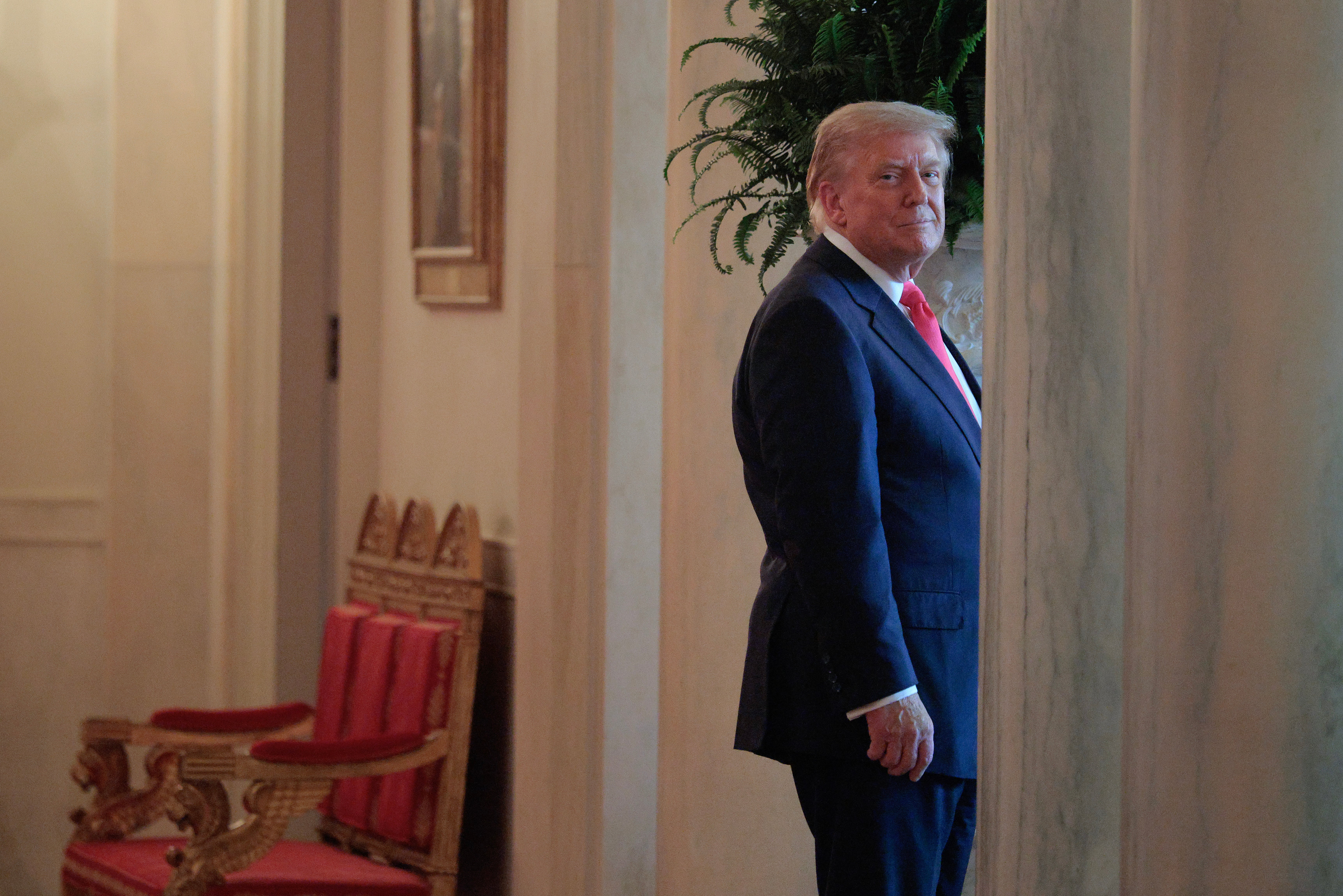The Supreme Court’s conservative majority has stripped federal courts’ authority to issue nationwide injunctions that have blocked key parts of Donald Trump’s agenda.
Friday’s 6-3 ruling, written by Trump appointee Justice Amy Coney Barrett, states that federal judges went too far blocking his executive order that seeks to unilaterally redefine who gets to be a citizen. Those nationwide injunctions “exceed the equitable authority that Congress has given to the federal courts,” according to the ruling.
The ruling opens the door for partial enforcement of Trump’s executive order, putting thousands of American-born children at risk of being denied their constitutional rights. Trump’s executive order will be blocked for another 30 days, however, allowing lower courts to revisit the scope of their injunctions and giving time for opponents to file new legal challenges.
Department of Justice attorneys will now “promptly file” legal challenges in cases where the president’s executive actions were temporarily blocked, Trump told reporters at the White House. Moments after the ruling, plaintiffs filed a new lawsuit that would protect citizenship rights for all newborn Americans, not just in the states that initially sued.
But the ruling does not definitively resolve challenges to birthright citizenship. A series of federal court rulings across the country earlier this year struck down the president’s attempt to block citizenship from newborn Americans who are born to certain immigrant parents. The government argued those decisions should only impact the individual states — and the unborn children of pregnant mothers in them — who sued him and won.
Opponents have warned that such a decision would open a backdoor to begin stripping away constitutional rights. In a blistering dissent, Justices Sonia Sotomayor called the court’s ruling “a travesty for the rule of law.”
Allowing the president to unilaterally redefine who gets to be a U.S. citizen in states subject to Trump’s rewriting of the 14th Amendment would create a patchwork system of constitutional rights and citizenship benefits — including voting rights.
More than 150,000 newborns would be denied citizenship every year under Trump’s order, according to the plaintiffs.
“Make no mistake: Today’s ruling allows the Executive to deny people rights that the Founders plainly wrote into our Constitution, so long as those individuals have not found a lawyer or asked a court in a particular manner to have their rights protected,” Justice Ketanji Brown Jackson wrote in her dissent.
The court’s decision gifted Trump the “prerogative of sometimes disregarding the law” that opens the door to “put both our legal system, and our system of government, in grave jeopardy,” Jackson warned.
“It is not difficult to predict how this all ends,” she wrote. “Eventually, executive power will become completely uncontainable, and our beloved constitutional Republic will be no more."

In January, more than 20 states, immigrants’ advocacy groups and pregnant plaintiffs sued the administration to block the president’s executive order.
Three federal judges and appellate court panels argued his order is unconstitutional and blocked the measure from taking effect nationwide while legal challenges continue. During oral arguments, the Supreme Court’s liberal justices appeared shocked at the president’s “unlawful” measure.
But the administration used the case not necessarily to argue over whether he can change the 14th Amendment but to target what has become a major obstacle to advancing Trump’s agenda: federal judges blocking aggressive executive actions.
The government asked the court to limit the authority of federal judges to issue nationwide injunctions, which have imperilled the bulk of the president’s agenda.

In cases across the country, plaintiffs have pushed for injunctions as a tool for critical checks and balances against an administration that critics warn is mounting an ongoing assault against the rule of law.
More than half of the injunctions issued over the last 70 years were against the Trump administration, according to the Harvard Law Review, as Trump pushed the limits of his authority.
In arguments to the Supreme Court, Trump’s personal attorney John Sauer, who was appointed by the president to serve as U.S. solicitor general, called the “cascade of universal injunctions” against the administration a “bipartisan problem” that exceeds judicial authority.
Trump’s allies, however, have relied on nationwide injunctions to do the very same thing they commanded the Supreme Court to strike down. Critics have accused right-wing legal groups of “judge shopping” for ideologically like-minded venues where they can sue to strike down — through nationwide injunctions — policies with which they disagree.
After the government’s arguments fell flat in front of a mostly skeptical Supreme Court last month, Trump accused his political opponents of “playing the ref” through the courts to overturn his threat to the 14th Amendment.

The 14th Amendment plainly states that “all persons born or naturalized in the United States, and subject to the jurisdiction thereof, are citizens of the United States and of the state wherein they reside.”
For more than 100 years, the Supreme Court has upheld the definition to apply to all children born within the United States.
But under the terms of Trump’s order, children can be denied citizenship if a mother is undocumented or is temporarily legally in the country on a visa, and if the father isn’t a citizen or a lawful permanent resident.
The president’s attempt to redefine citizenship is central to his administration’s sweeping anti-immigration agenda.
His administration has also effectively ended entry for asylum seekers; declared the United States under “invasion” from foreign gangs to summarily remove alleged members; and stripped legal protections for more than 1 million people — radically expanding the pool of “undocumented” people now vulnerable for arrest and removal.
The administration “de-legalised” tens of thousands of immigrants, and thousands of people with pending immigration cases are being ordered to court each week only to have those cases dismissed, with federal agents waiting to arrest them on the other side of the courtroom doors.
The White House has also rolled back protections barring immigration arrests at sensitive locations like churches and bumped up the pace of immigration raids in the interior of the country.
To carry out the arrests, the administration has tapped resources from other state and local agencies while moving officers from federal agencies like the FBI and DEA to focus on immigration. There are more people in immigration detention centers today than in any other point in modern history.
Supreme Court allows parents to opt children out of classes that use LGBT-inclusive books
Trump is trying to undo the 14th amendment. Historians are horrified.
What's next for birthright citizenship after the Supreme Court's ruling
Trump admin wants to fine those in US illegally $1,000 per day until they leave
Justice Amy Coney Barrett rips Ketanji Brown Jackson over birthright dissent







